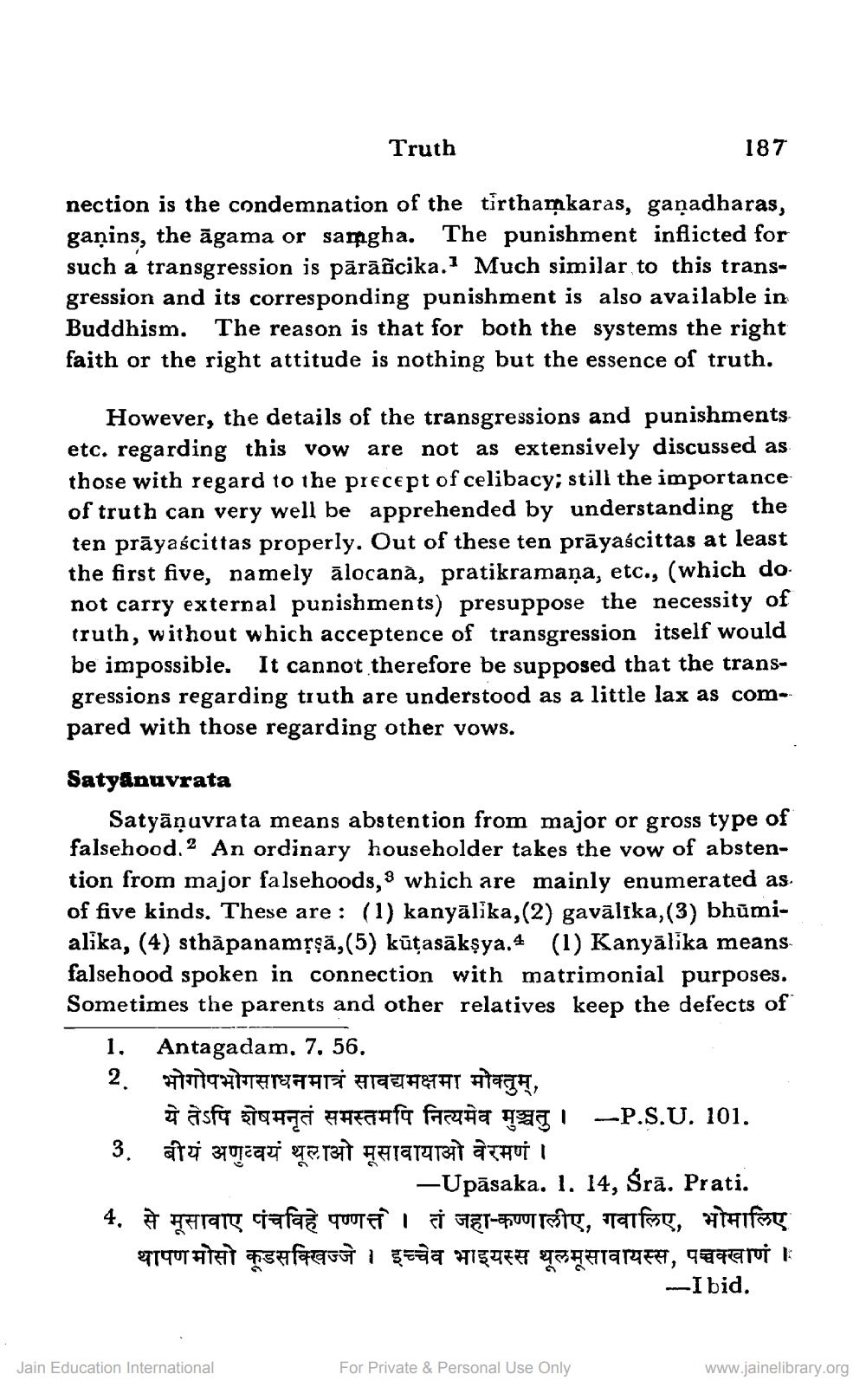________________
Truth
187
nection is the condemnation of the tirthamkaras, ganadharas, gaņins, the āgama or samgha. The punishment inflicted for such a transgression is pārāñcika.. Much similar to this transgression and its corresponding punishment is also available in Buddhism. The reason is that for both the systems the right faith or the right attitude is nothing but the essence of truth.
However, the details of the transgressions and punishments etc. regarding this vow are not as extensively discussed as those with regard to the precept of celibacy; still the importance of truth can very well be apprehended by understanding the ten prāyaścittas properly. Out of these ten prāyascittas at least the first five, namely ālocana, pratikramana, etc., (which do not carry external punishments) presuppose the necessity of truth, without which acceptence of transgression itself would be impossible. It cannot therefore be supposed that the transgressions regarding truth are understood as a little lax as compared with those regarding other vows.
Satyanuvrata
Satyāņuvrata means abstention from major or gross type of falsehood.2 An ordinary householder takes the vow of abstention from major falsehoods, which are mainly enumerated as. of five kinds. These are: (1) kanyālika,(2) gavālska,(3) bhūmialika, (4) sthāpanamrşā,(5) kūțasākşya.4 (1) Kanyālika means falsehood spoken in connection with matrimonial purposes. Sometimes the parents and other relatives keep the defects of
1. Antagadam, 7. 56. 2. भोगोपभोगसाधनमात्रं सावद्यमक्षमा मोक्तुम्,
À asfor 1970 Haafo FACTÀ 971 -P.S.U. 101. 3. बीयं अणुव्वयं थूलाओ मूसावायाओ वेरमणं ।
-Upāsaka, 1. 14, Śrā. Prati. 4. से मूसावाए पंचविहे पण्णत्त । तं जहा-कण्णालीए, गवालिए, भोमालिए थापणमोसो कूडसक्खिज्जे । इच्चेव भाइयस्स थूलमूसावायस्स, पञ्चक्खाणं ।
-Ibid.
Jain Education International
For Private & Personal Use Only
www.jainelibrary.org




